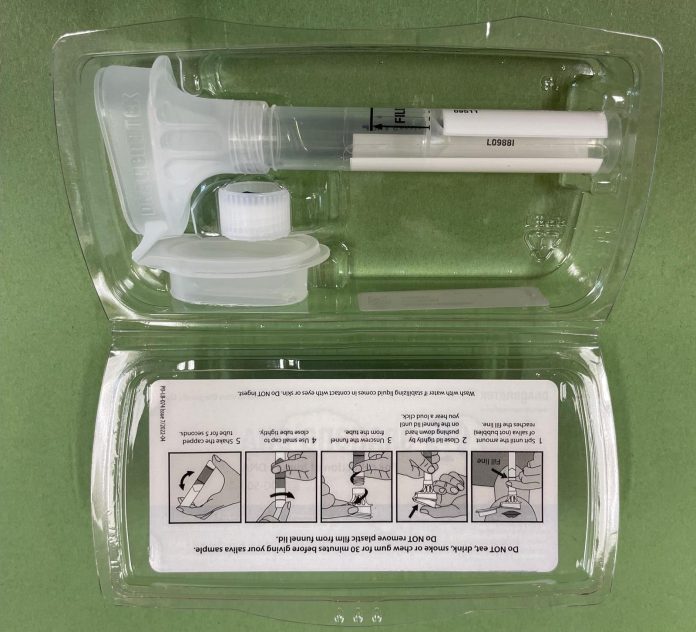A revolutionary new prostate cancer test, which can be taken at home, could lead to thousands of earlier diagnoses, offering hope for improved survival rates and significant savings for the NHS.
Prostate cancer is one of the most common cancers among men, with over 52,000 cases expected this year.
Unfortunately, up to one in four of these cases are diagnosed at a later stage, when treatments are more complex and more costly – around £650m annually.
This new saliva-based prostate cancer test, developed by researchers at The Institute of Cancer Research (ICR) in London, promises to change that. The test uses DNA from a simple saliva sample to calculate a genetic risk score for prostate cancer.
General practitioners (GPs) will offer the test to patients, and those identified as higher risk will be referred for further checks, potentially detecting the disease much earlier than current methods allow.
Benefits of the new prostate cancer test
The new prostate cancer test, known as PRODICTTM, could help diagnose up to 12,350 cases earlier each year, according to researchers, saving the NHS around £500m each year.
Early diagnosis is crucial, as it allows for more straightforward and less expensive treatments, ultimately improving patient outcomes.
Unlike traditional blood tests, which measure prostate-specific antigen (PSA) levels, this saliva test analyses over 400 genetic variants linked to prostate cancer. It also offers more accurate results, especially for those at higher risk.
Inclusive and cost-effective screening
The study aims to recruit 1,000 participants, aged 40 to 55, from diverse ethnic backgrounds, including those of Black African-Caribbean ancestry, who are twice as likely to develop prostate cancer.
Previously, genetic tests were less effective for non-European populations, but the new prostate cancer test has been designed to be more inclusive.
Professor Ros Eeles, Professor of Oncogenetics at The Institute of Cancer Research, London, and Consultant in Clinical Oncology and Cancer Genetics at The Royal Marsden NHS Foundation Trust, added: “With our simple to collect, at-home spit test, we hope not only to extend the lives of people diagnosed with prostate cancer but also to save the NHS a significant amount of money.
“Too many men are diagnosed with prostate cancer at a late stage when it is less likely to be curable and requires intensive, expensive treatment. We desperately need a screening programme for prostate cancer that picks up the men at risk of aggressive cancers who need further tests but spares the men who are at lower risk from unnecessary treatments.
“In men of European heritage, we’ve shown that identifying men at higher risk due to their genetic makeup is an effective tool to catch the cancer early. Now, we’re excited to be able to roll out our test to diverse populations – as Black men are twice as likely to develop prostate cancer – and younger groups, as those with a genetic predisposition are more likely to be diagnosed at younger ages.
“If our PRODICTTM test is successful, it could revolutionise healthcare as the first of many saliva tests provided to patients in primary care for a range of diseases, identifying people who will need further treatments by looking for variants in their DNA.”
This groundbreaking test, if proven successful, could be a game changer for early prostate cancer detection, potentially saving thousands of lives and reducing the strain on healthcare systems.
Researchers will continue to monitor participants over the next three years to confirm its effectiveness in identifying prostate cancer at an earlier stage.









